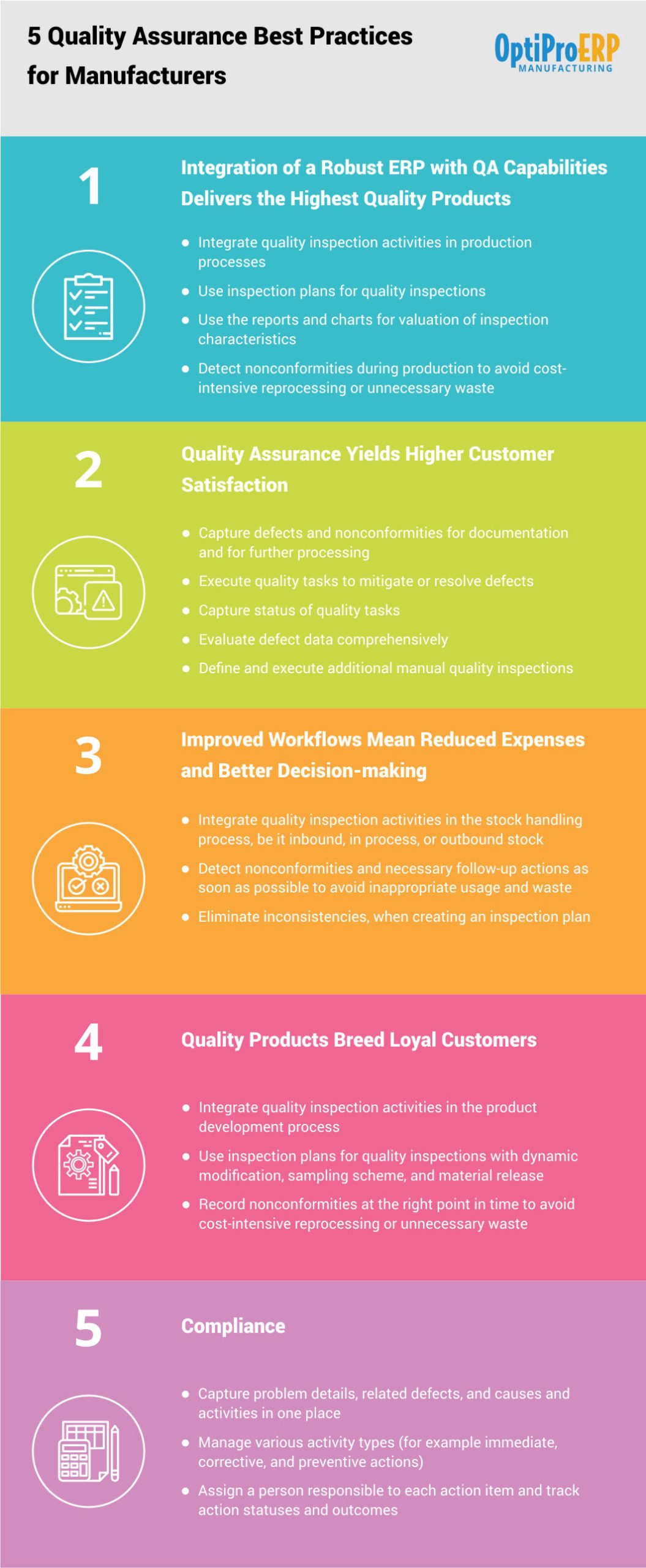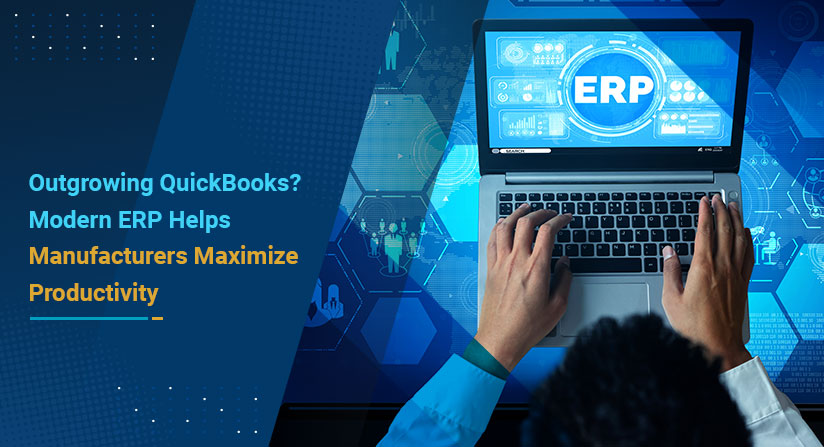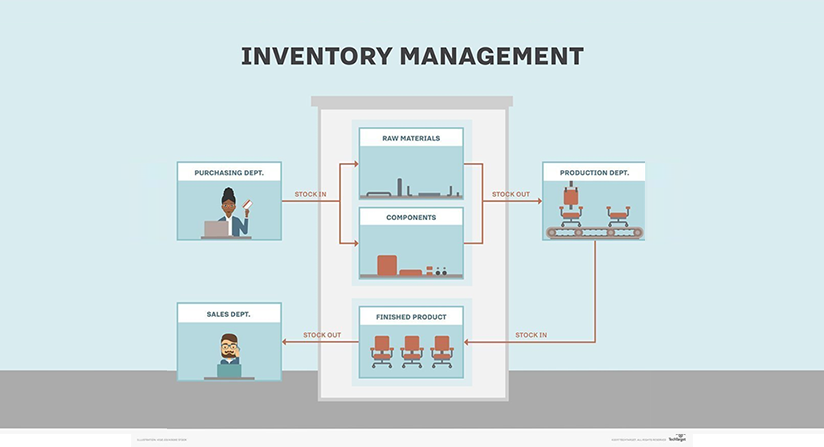In a manufacturing organization, quality management is an important process that ensures error-free and timely delivery of products to customers. When your products are not delivered on time or have defects, it hurts your business reputation.
In this blog, you will learn what quality management is and the benefits and best practices of quality assurance in manufacturing industry. Read on to learn:
- What is quality management?
- What is the relationship between quality assurance and quality control in Manufacturing Industry?
- What are the benefits of quality assurance?
- What are quality assurance best practices?
- How can OptiProERP’s quality management module foster better productivity and error-free products?
What is Quality Management?
Quality Management is a rigorous methodology employed by a manufacturing company to ensure consistent product quality. Two essential components of quality management are Quality Assurance (QA) and Quality Control (QC), which are often used interchangeably, even though there are differences between the two.
What Is the Relationship Between Quality Assurance and Quality Control in Manufacturing Industry?
According to the American Society for Quality (ASQ), “Quality assurance consists of that ‘part of quality management focused on providing confidence that quality requirements will be fulfilled’. The confidence provided by quality assurance is twofold—internally to management and externally to customers, government agencies, regulators, certifiers, and third parties.”
Also, according to the ASQ, “Quality control is that ‘part of quality management focused on fulfilling quality requirements’. While quality assurance relates to how a process is performed or how a product is made, manufacturing quality control is more about the inspection aspect of quality management.”
Best practices in quality management focus on the prevention of mistakes and/or defects during the manufacturing process. Adherence to its principles helps to streamline production and ensure the company’s exacting standards are met throughout the design, development, manufacturing, and delivery processes. Manufacturing quality assurance also helps to safeguard the quality of all raw materials, components, assemblies, and finished products and to prevent any issues arising as a result of defective third-party components.
Typically, those working in a manufacturing quality control team function as overseers of critical systems such as document control, process control, calibration, training, and corrective action, and are also tasked with conducting audits, as necessary, to ensure compliance with ISO 9000 or TS16949 standards.
The ASQ, in collaboration with the American Productivity and Quality Center (APQC), recently published the 2016 Global State of Quality 2 Research reports. The report’s findings are based on nearly 1,700 survey respondents from organizations around the world and it addresses topics that are relevant to quality and continuous improvement programs, including the influence of the customer, trends in industry standards, training systems, governance structures, and more. One interesting fact from the report is that 60 percent of respondents don’t know or don’t measure the financial impact quality has on their organization.
What Are the Benefits of Quality Assurance?
1. Quality Assurance Saves Time and Money
It might take time in the beginning to create processes that catch errors, but the fact is that it saves money and time in the long run. If errors are not fixed in the early stage of production, it can take a long time to fix them in the latter stage. Also, paying money to prevent errors is far better than paying to fix them.
2. Quality Assurance Boosts Customer Confidence
The quality of the product determines the level of reliability and trust your customer has towards the brand, product, and company. Conducting quality assurance practices not only improves the quality of products but also ensures compliance with requirements and regulations. When error-free products are delivered on time, customer retention becomes easier.
3. Quality Assurance Promotes Better Process Control
Quality assurance best practices eliminate error-prone data entry and promote a single source of truth. It improves the accuracy of data by setting up quality checks and conducting quality control tests from beginning to end in production.
4. Quality Assurance Improves Production Efficiency
Production efficiency increases when high-quality materials are procured, defects are eliminated, the quality of machinery is improved, and workers are competent. Quality assurance is an important part of the manufacturing process which leads to higher production, profitability, and better management of the business.
What Are Quality Assurance Best Practices?
Best practices in a company’s quality assurance program contribute to a host of benefits, including reduced costs, dramatically increased efficiencies, and ultimately, enhanced customer satisfaction.

5 Key Quality Assurance Best Practices to Consider
1. A Robust ERP System With QA Capabilities Delivers High Quality For Manufacturers
While many manufacturers have yet to adopt a fully automated system to ensure the quality of their product, gradually, more and more companies are transitioning to Enterprise Resource Planning (ERP) with robust quality assurance functionality. These solutions provide the tools needed to effectively manage quality assurance objectives at every point in the supply chain, from initial evaluation to finished product to distribution. ERP systems also enable quality assurance teams to monitor all of the systems and sub-systems in the production cycle for errors or defects so that the finished products are consistent and of the highest quality, as well as safe and effective.
2. Quality Assurance Yields Higher Customer Satisfaction
Quality assurance and customer satisfaction are inextricably interconnected. That’s why manufacturers who rely on ERP solutions during the production process are much more likely to deliver higher-quality products that will attract more loyal customers in the long term.
An ERP system with robust quality assurance capabilities can gather critical, real-time intelligence from within the manufacturing plant, distribution centers, human resources, etc., as well as every link in the supply chain. Armed with all of this intelligence, manufacturers are not only able to produce higher-quality products, they can deliver higher levels of customer service.
3. Improved Workflows Mean Reduced Expenses and Better Decision-making
Another by-product of an ERP system with integrated quality assurance functionality is the ability to generate accurate forecasts that can anticipate future events in the supply chain and help to make workflows more efficient. Worthy ERP solutions provide a broad range of business analytics that can shed light on the effectiveness of assorted workflows, including production planning, inventory, and distribution. Studies indicate that the use of ERP systems helps businesses make more informed decisions and significantly reduces costs.
One such research study by the Aberdeen Group reveals that access to accurate, real-time information about daily operations helps businesses make faster, smarter decisions, enabling them to reduce operational costs by 23% and administration costs by 22%.
4. Quality Products Breed Loyal Customers
This is an extension of Quality Assurance Best Practices #2, but it bears restating – if a manufacturer takes all the steps necessary to produce a first-rate product and delivers to customers on time, the odds are very good that not only will they achieve repeat customers, but those repeat customers will recommend their products to others.
In other words, the benefits (and the profits) will accrue over time. One additional way to earn customers’ trust is to provide them with up-to-date manufacturing quality control and assurance testing information (taken from the ERP system) on products they purchase. Doing this reinforces the perception that the company is committed to quality and transparency.
5. Compliance
Compliance is a critical issue for all manufacturers and an ERP solution with quality assurance capabilities will instill confidence that all regulations and manufacturing quality standards are met across the board. For starters, these systems will help manufacturers comply with all health and safety guidelines in the workplace (e.g., OSHA) and thus avoid hefty fines and other penalties that can result from non-compliance. To this end, the right manufacturing ERP can collect all applicable data from integrated systems to monitor workplace safety and prevent any potential workplace hazards.
An ERP solution also generates weekly or monthly safety reports. The system enables manufacturers to design their own testing procedures for incoming materials to make sure they meet all requirements, starting with the quality of raw materials and spreading throughout the entire manufacturing process.
How Can OptiProERP’s Quality Management Module Foster Better Productivity and Error-Free Products?
OptiProERP is an end-to-end Enterprise Resource Planning (ERP) solution built on a world-leading platform: SAP Business One. With modules such as Financial Management, Sales and CRM, Warehouse Management, Production Management, Quality Management, and more, OptiProERP helps manufacturers gain greater control over their business. It integrates data from every department on one platform, and offers centralized access to all users.
OptiProERP’s Quality Management module helps manufacturers fully manage and streamline quality management and compliance processes across the supply chain, from procurement to production to shipping.
OptiProERP with SAP Business One allows manufacturers to:
- Identify defects and issues and resolve them with corrective and preventive actions
- Capture quality control tests and inspection results in real-time
- Comply with industry, regulatory, validation, and customer requirements
- Unify quality, manufacturing, and distribution processes for better traceability
So, are you ready to have a quality management plan that allows your manufacturing business to grow by producing exceptional products? Contact us to learn more about the OptiProERP Quality Management module.
With an integrated ERP solution, manufacturers can improve business outcomes, and simulate the impact of business decisions. Schedule a demo to learn about ERP software and how it helps manufacturers grow.
Follow Us










